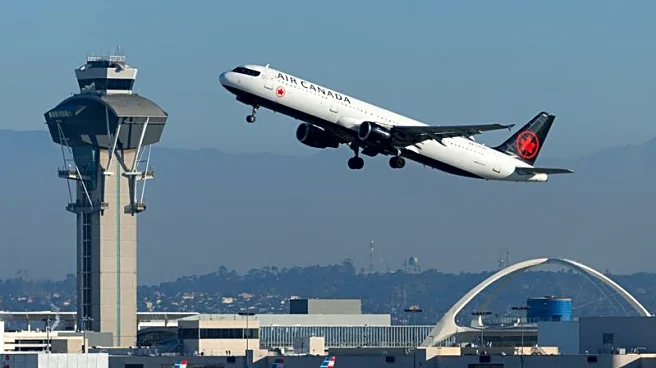What's Happening?
China is actively pursuing space tourism, leveraging its vast resources and growing private sector to compete with established players in the U.S. The country plans to offer suborbital trips by 2027, aiming
to make space travel more affordable. Since allowing private investment in space in 2014, China has seen rapid growth in its space industry, with significant investments and developments. Companies like CAS Space and Deep Blue Aerospace are leading efforts to reduce costs and increase accessibility, with plans for suborbital flights and space tourism packages.
Why It's Important?
China's entry into space tourism represents a significant shift in the global space industry, challenging the dominance of U.S. companies. The country's ability to offer lower-cost space travel could democratize access to space, making it more accessible to a broader audience. This development may stimulate competition, driving innovation and reducing costs across the industry. China's focus on integrating space technology with tourism could create new economic opportunities and strengthen its position as a leader in space exploration.
What's Next?
China's space tourism initiatives are expected to mature by 2027, with companies continuing to develop technologies and partnerships to enhance offerings. The government may increase support for private sector involvement, fostering a collaborative environment for innovation. As space tourism becomes more viable, China could attract international interest and investment, further boosting its space industry. The success of these initiatives may influence global space policy and encourage other countries to explore similar opportunities.










